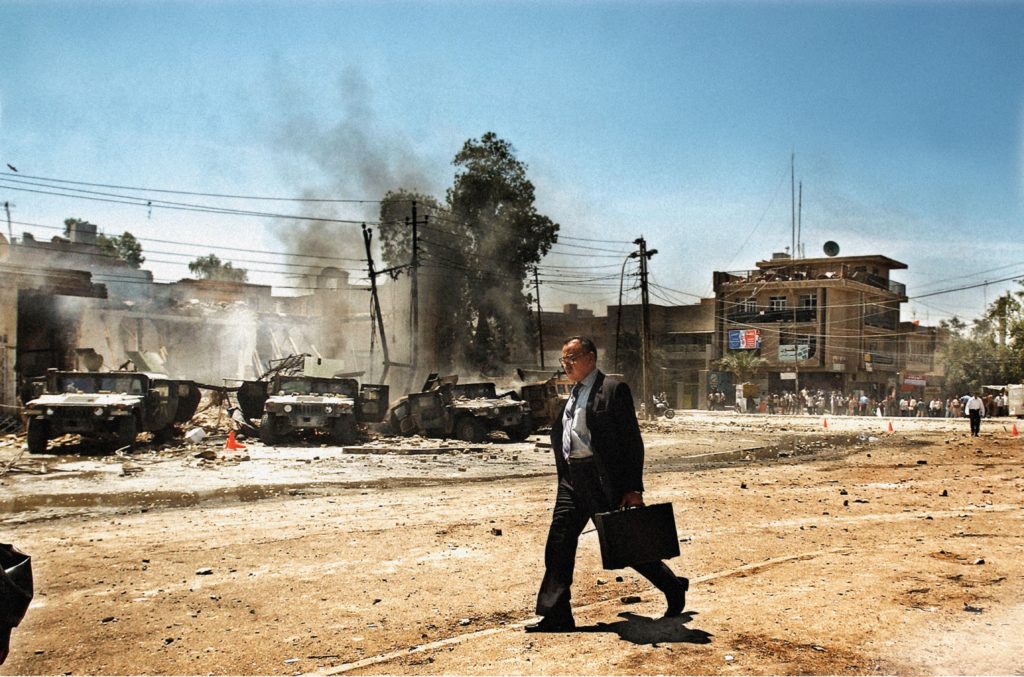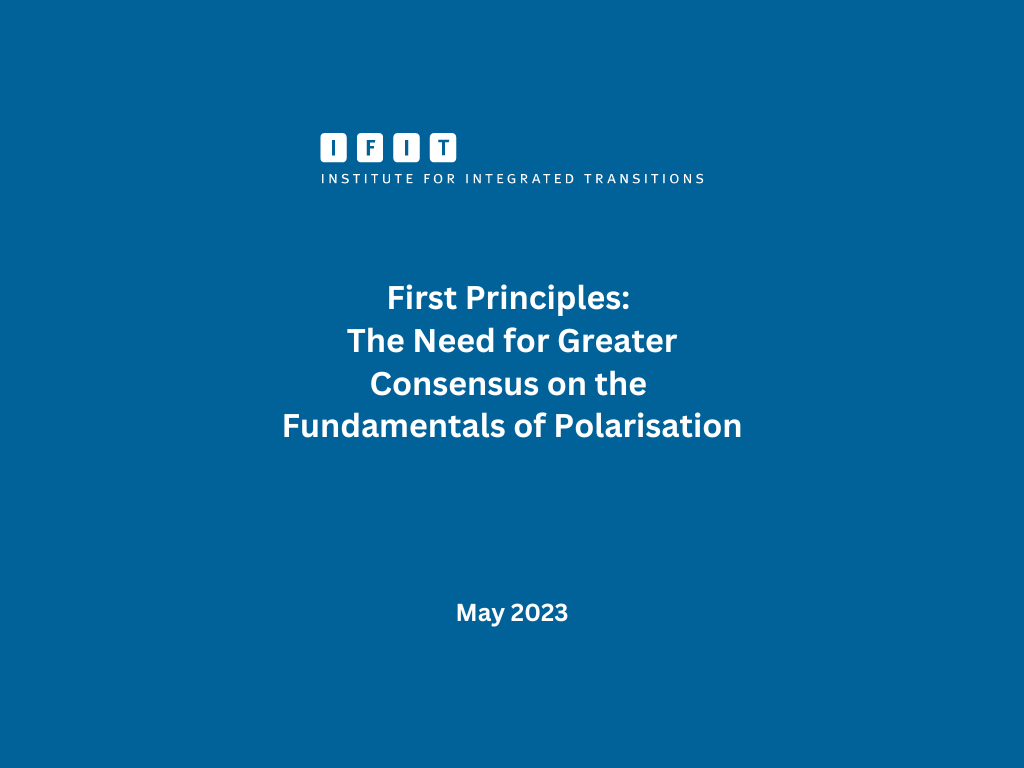Expert Team: Transition Assistance Practice Group
Martin completed his PhD at the Clinton Institute (University College Dublin), where his research focused on the role of the Irish diaspora in the Northern Ireland Peace Process examining areas such as diaspora media, diaspora philanthropy, and diaspora politics. He is the founder of Global Diaspora Insights (GDI).
GDI provides advisory, research, policy, and training services on diaspora engagement through its in-house expertise and network of global experts. In collaboration with partners, GDI has contributed to diaspora engagement in over 50 countries for a variety of public, private, and third sector clients.
Martin currently sits on the Advisory Board of Ireland Reaching Out, which is a volunteer-based, non-profit initiative that connects people of Irish heritage with their place of origin in Ireland and he is an advisor at The Networking Institute. Previously, he was a visiting fellow at the United Nations University in Maastricht (UNU-MERIT) and served a full-term on the Executive Advisory Council of the African Diaspora Network based in Silicon Valley.
Martin has a strong and varied publication record on diaspora engagement including work supported by several governments as well as the African Development Bank Group, African Union, European Union, United Nations, and others. His most recent academic publication was ‘Diaspora Philanthropy: Unlocking New Portals for Diplomacy and Development’ in the first edition of the Routledge International Handbook of Diaspora Diplomacy. He has also participated in or co-chaired organising committees for several flagship global convenings on diaspora engagement including the inaugural Global Diaspora Summit co-hosted by the Government of Ireland and U.N. Agency for Migration in 2022.
You may also be interested in
Professor Gibril Faal is a multi-disciplinary business and development executive. He is the co-founder and director of GK Partners, which specialises in socially responsible business models, sustainable development and programme implementation. He is also a visiting professor in practice at the London School of Economics (LSE) and at the Firoz Lalji Institute for Africa (FLIA); a council member of Carnegie African Diaspora Program; and Lead Consultant to the African Union Commission on innovative, development and diaspora finance.
In the early 2000s, Professor Faal was part of the small team of experts that worked on a Department of Trade and Industry project to develop the UK’s social enterprise business support, legal and financing structures. In 2003, he founded RemitAid™ as a mechanism to transform remittances into a sustainable form of development finance. In 2017, he initiated the Migration and Sustainable Development in The Gambia project (MSDG) in partnership with the governments of Switzerland and The Gambia.
Professor Faal has previously served as: vice chair of Bond, the network of UK NGOs working on international development; chairman of AFFORD-UK, the pioneering diaspora-development charity; founding director of the Africa-Europe Diaspora Development Platform (ADEPT); and as a magistrate in Her Majesty’s Court and Tribunal Service. He has worked as a technical expert with the United Nations, World Bank, European Union, University of Oxford, and many development institutions and governments across the world. In 2017, he served as overarching expert for the Global Compact for Migration (GCM), and has addressed the UN General Assembly several times. In the past 25 years, he has been appointed to various strategic, development and management boards and panels across the world. In the UK, he has been appointed to several public function roles by the Chancellor of the Exchequer, Secretary of State for International Development, Home Secretary, and the Lord Chancellor. In 2014, Professor Faal was appointed an OBE in the Queen’s Birthday Honours List for services to international development.
You may also be interested in
Adrian Magendzo is an entrepreneur and Professor of Innovation and Entrepreneurship at the University of Kentucky. As an independent international consultant in innovation and entrepreneurship policy, he has worked with various institutions including the Inter-American Development Bank and the World Bank. With IFIT, he has contributed to the Institute’s work on strengthening entrepreneurial ecosystems in The Gambia and Uzbekistan.
Prior to these roles, Adrian served as an economic attaché to the Chilean embassy in Washington, D.C., and as director and professor of the Master in Innovation and Entrepreneurship programme at the Universidad Adolfo Ibanez in Santiago, Chile. He was previously Executive Director of the High Impact Entrepreneurship Policy division at Innova-Corfo, the Chilean government’s innovation and entrepreneurship promotion agency. As an entrepreneur, Adrian has founded several companies in the technology, manufacturing, and food industries.
Adrian has a Master’s of Science in Industrial Engineering from the University of Chile and a Master’s in Technology Commercialisation and Innovation from the McCombs School of Business, University of Texas at Austin.
You may also be interested in
Rachel Scott heads the Impact team at the Multilateral Performance Network (MOPAN) Secretariat, hosted at the Organisation for Economic Co-operation and Development (OECD). Here, she focuses on supporting the 22 MOPAN members to use their collective voice, and the evidence from MOPAN assessments, to fulfil their role as responsible shareholders and funders of the multilateral system. Rachel also specialises in organisations working in crises, and is currently assessing the trustworthiness and performance of the International Organization for Migration (IOM), the United Nations Refugee Agency (UNHCR) and the UN World Food Programme (WFP).
Rachel joined the OECD in 2010 as Senior Humanitarian Advisor, reviewing donor practices, and then took on a leadership role in the Crises and Fragility team, supporting the International Network on Conflict and Fragility (INCAF), a member state network. During this time, she focused on financing for crises and fragile contexts, about which she has written extensively. Prior to her global policy work, Rachel spent many years in beautiful, fragile contexts around the world, working for the UN and for a range of international NGOs.
You may also be interested in
Ambassador Yakobashvili is founder and president of the TY Strategies LLC, a boutique consulting firm specializing in advising governments, non-governmental institutions and business communities in the U.S., Europe and Eurasia. Prior to that, he served as an Executive Vice President of PASS LLC, a global social impact consultancy firm. In 2014, he founded and led the Washington, DC-based New International Leadership Institute, a not-for profit organization dedicated to reforms, good governance and anti-corruption. Prior to that, he held the position of Senior Transatlantic Fellow at the German Marshall Fund of the United States. From early February 2011 to March 2013, he served as Ambassador of Georgia to the United States. Prior to his posting, he was Deputy Prime Minister and State Minister for Reintegration in the Government of Georgia.
Ambassador Yakobashvili is a career diplomat who joined the Ministry of Foreign Affairs of Georgia in 1991. He holds the diplomatic rank of Ambassador Extraordinary and Plenipotentiary granted by the President of Georgia.
He is a graduate of the Department of Physics from the Tbilisi State University. In 1998 he was trained in mid-career Diplomatic Courses at the Centre of Political and Diplomatic Studies at Oxford University. He is a Yale World Fellow (2002) and participated in the Executive Security Program at Harvard University’s Kennedy School of Government (2004). In 2006, he was a visiting researcher at the Silk Road Study Centre of Uppsala University, Sweden.
Ambassador Yakobashvili co-founded and has served as an Executive Vice-President of the Georgian Foundation for Strategic and International Studies (GFSIS), a leading think tank in the Caucasus region. He also co-founded the Atlantic Council of Georgia, as well as the Council of Foreign Relations of Georgia. He frequently contributes to international printed and digital media on issues of regional security and transformation.
In February 2012, Ambassador Yakobashvili was decorated with Presidential Medal of Excellence. He speaks Georgian, English, Russian and Hebrew.
You may also be interested in
Zuhra Halimova is senior analyst at the Digital Ecosystem Country Assessment (DECA), part of the USAID US Support for Economic Growth in Asia (US-SEGA) project. She also conducts research on the digital transformation of the Central Asia region, working with the EU, World Bank, USAID, GIZ and Internews/RDR. Zuhra is strategic advisor to Women in Digital Transformation.
Previously, Zuhra was a visiting scholar at the Institute for European, Russian and Eurasian Studies at the Elliott School of International Affairs, George Washington University. In this capacity she conducted critical analytical discussions with stakeholders, which she developed into a book manuscript, Reassessing Foreign Aid in Eurasia: Donors’ Agendas and Local Perceptions.
For more than 20 years, she was the executive director of the Open Society Institute Assistance Foundation in Dushanbe, Tajikistan. In this role, she worked closely with governmental and non-governmental stakeholders and international organisations, in addition to independent media and business.
Zuhra holds a master’s degree in international relations from the Fletcher School of Law and Diplomacy at Tufts University. She also has a master’s in oriental studies from Tajik State National University. Zuhra previously completed the US-South Asia Leader Engagement Program, “Terrorism as Threat to Global Security”, part of Harvard Kennedy School of Government’s Executive Education Program. She has also completed the Global Leaders Executive Education Program at INSEAD-OSF.
You may also be interested in
Dr. Timothy Nielander works on a wide range of public-private cooperation projects focused on improving collaboration and systems for facilitating development assistance and innovative approaches to funding and addressing global challenges. He has served as General Counsel and Managing Director of Corporate Services for Gavi the Vaccine Alliance, as well as an advisor and a Board Member for development programs focused on the Millennium/Sustainable Development Goals. He has developed programs with multinational and private participants based in Europe, the Middle East, Caribbean/Central America, Southeast Asia, Africa and the South Pacific across a range of issues: disaster planning and response, health, education, agriculture, financial inclusion, clean energy, sports-development, safety/security. He has lived and worked in Jordan, Belgium, and Switzerland and travels frequently to Africa, Pacific Asia and Europe to work in-country. Tim is a qualified solicitor in England/Wales and licensed to practice law in Washington, USA. He holds an LLM in Intellectual Property Law and a PhD from the University in Geneva. He recently published “Public–Private Partnerships in Global Development” (Edward Elgar, 2020) for which a companion university course has been developed for universities serving as magnets for students of international cooperation in six geographical regions. Prior to becoming a specialised consultant for international organisations Tim practiced with the Seattle law firm, Preston, where he provided counsel to a broad range of clients, including the Bill and Melinda Gates Foundation, Microsoft Corporation and Amazon.com.
You may also be interested in
Souheil Kaddour is a Tunisian tax lawyer and university lecturer on taxation and anticorruption. He has assisted and advised various organisations (national and international, public and private, governmental and non-governmental) including the United Nations Development Program (UNDP), United Nations Office on Drugs and Crime (UNODC), Instance National de Lutte contre la Corrupton (INLUCC), Institut Arabe des Chefs d’entreprises (IACE), Centre des études juridiques et judiciaires (CEJJ) and others. Currently, he is a Member of the Anti-Corruption Academic Initiative (ACAD/UNODC).
From 2012 to 2015, Souheil was Advisor to the Tunisian Minister of Justice, Human Rights and Transitional Justice. In the role, he participated in drafting many texts, led several projects and directed many technical commissions related to the Tunisian democratic transition. Souheil has published several papers and given many national and international conferences in the areas of governance, anticorruption, tax reforms and transition.
In 2016, he was selected by INLUCC & UNDP as National Expert to review and elaborate the National Strategy for Good Governance and Anti-Corruption 2016-2020 and its Action Plan 2017-2018.
You may also be interested in
Shruti Mehrotra is the former Director of Policy for the Soros Economic Development Fund and the Open Society Foundations’ Economic Advancement Program. In this role, she was responsible for policy support to leading reformers in countries in transition and the Refugees and Migrants Investment Initiative, a 500M USD commitment George Soros made to supporting private sector engagement with refugees, migrants and host communities. Previously, Mehrotra was Director at the Tony Blair Africa Governance Initiative, where she first led efforts to advance reforms with Guinea’s then newly elected president Alpha Conde. Mehrotra then worked with the presidential team in Myanmar to implement change in the long-closed nation before continuing on to lead development of Blair’s work across Africa.
Mehrotra began her state building and governance work in 2002 when the Taliban fell in Afghanistan. There, she led one of the largest assistance efforts in the country. She went on to direct complex international assistance projects in Darfur, the Balkans, and the West Bank. Based on her work, Mehrotra was selected as a Global Leadership Fellow by the World Economic Forum, where she collaborated with the G-20 and the UN Secretary General on geopolitical and economic development initiatives. Mehrotra holds two MAs in Applied Mathematics and Global Politics from the London School of Economics and Political Science and an executive MBA from a WEF-led consortium including Harvard and INSEAD.
You may also be interested in
Dr. Paikiasothy Saravanamuttu is the founder Executive Director of the Centre for Policy Alternatives (CPA), a member of the Foreign Policy Advisory Group and of the Board of the Lakshman Kadirgamar Institute for International and Strategic Studies. He has presented papers on governance and peace in Sri Lanka at a number of international conferences and is widely quoted in the international and local media.
In 2010, Dr. Saravanamuttu was awarded the inaugural Citizens Peace Award by the National Peace Council of Sri Lanka and in September 2013, he was invited by President Obama to attend his “High Level Event on Civil Society” in New York. In 2016, he was appointed, Secretary of the Task Force on Consultations on Mechanisms for Reconciliation and in 2017, short-listed for the Peace Prize awarded by the city of Ypres, Belgium. He is also a member of the Regional Advisory Group of Amnesty International for Asia.
Dr. Saravanamuttu is a Founding Director of the Sri Lanka Chapter of Transparency International and a Founding Co- Convener of the Centre for Monitoring Election Violence (CMEV), which has monitored all the major elections in Sri Lanka since 1997 and the civil society alliance the Platform for Freedom. In 2004 he was an Eisenhower Fellow (2004) and is currently Chairperson of the Eisenhower Fellows, Sri Lanka and a Member of the Gratiaen Trust.
Dr. Saravanamuttu received a BSc Economics, Upper Second Class Honours degree and Ph. D in International Relations from the London School of Economics and Political Science (LSE), University of London, in 1979 and 1986, respectively. He lectured in International Politics at the University of Southampton, UK, from 1984–92.
You may also be interested in







